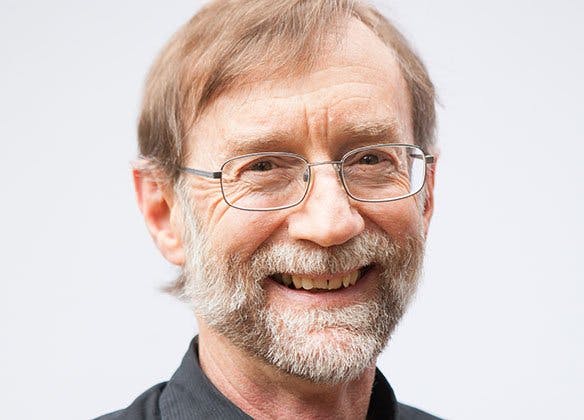 This essay was originally published in the Autumn 2001 issue of SPU’s Response
This essay was originally published in the Autumn 2001 issue of SPU’s Response
The responses of the Seattle Pacific University community to the Sept. 11 tragedies have made tangible the wisdom of Micah 6:8 found on the welcoming sign next to the Student Union Building: “And what does the Lord require of you? To act justly and to love mercy and to walk humbly with your God.”
Within two hours of the attacks, faculty, staff, and administrators at the Camp Casey Retreat were gathered in worship. I will never forget Robbin O’Leary leading us in “When Peace Like a River” as tears of grief began to flow. Over the following weeks, the student-organized “Wall of Hope,” candlelight vigils, prayers, forums, faculty discussions over “What would Jesus do?” and the earnest question of students, “How could they hate us so much?” are an indelible and cherished part of my experience.
Also cherished is the afternoon my family and I shared with the Muslims of Seattle’s Northgate Mosque. We drove past the mosque the day after it was hit by an arson attack, and we noticed a group of people waving signs and inviting passing motorists to show their support for religious tolerance. We stopped to get a closer look, were warmly welcomed, and soon found ourselves waving signs as well. Several hours later I was losing my voice because of the incredible show of solidarity by passing motorists.
As a Christian historian who has studied the Middle East and Islam for 30 years, I struggle to place the events of Sept. 11 into some kind of perspective. Beneath the obvious changes of the past months are less obvious but no less important continuities. In some ways, what we have witnessed is nothing new. When Voltaire wrote in the 18th century, “What can you say to a man who tells you that he would rather obey God than men, and that therefore he is sure to go to heaven for butchering you?” he was responding to centuries of religious warfare in Europe in which Christians had been killing Christians in the name of religion.
The answers to such cycles of violence are even older, contained in the teachings, the life, the death and the resurrection of Jesus Christ — the center of our community, the source of our hope.
Nothing could justify the murderous actions of Sept. 11; neither are the victims of Sept.11 honored by a refusal to ask the question “why?” Who among us would argue that suicidal terrorists are born murderers? The victims will be honored by our efforts to ensure that their children and grandchildren will never again be visited by such tragedy.
An e-mail from a student in my sophomore Common Curriculum course, “The West and the World” was a reminder of how much my students have to teach me. It was a quote from Aleksandr Solzhenitsyn: “If only it were all so simple! If only there were evil people somewhere committing evil deeds, and it were necessary only to separate them from the rest of us and destroy them. But the line dividing good and evil cuts through the heart of every human being. And who is willing to destroy a piece of his own heart?”
Don Holsinger chaired SPU’s History Department and specialized in the Middle East, Islamic civilization, and modern global history. His interest in the Middle East and Islam developed after he and his wife taught English in Algeria. He later returned to Algeria with his family to research the history of a Muslim community in the Sahara Desert. After the events of 9/11, Holsinger focused his courses, “The Rise of Islamic Civilization” and “History of the Modern Middle East” on the historical roots of the Sept. 11 crisis.




